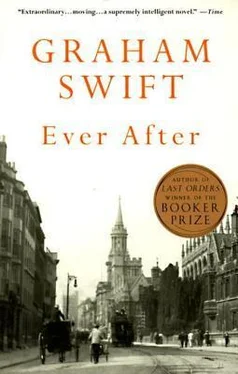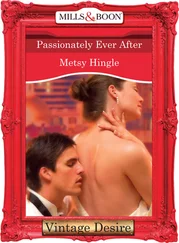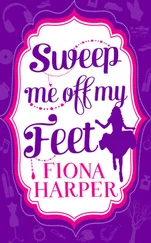In the days before she was famous. Which was the greater fairy-tale?
I owe it all to a summer storm. The oldest ruse in the book of Romance. Dido and Aeneas. Ginger and Fred. Mr Silvester was a considerate, a courteous man. All that rough living that was now behind him had given him an exaggerated regard for the niceties of life. His club (or “establishment,” as he liked to call it) was a good, clean club; his girls were decent girls. One of the decencies he showed them in return was to pay for taxis to take them home in the early hours. My own means of transport was a rusting bike. While the Blue Moon Club warmed up, the cabaret commenced and all Soho went through its nightly paces, it waited, in sad but faithful exclusion, by the rear entrance, to take me home. But that night that the heavens opened (they opened! They poured down blessings!), it remained there, as on many a subsequent night, to rust even more.
Chucking it down at half-past two in the morning. I would get drenched (said Mandy and Diana). I would catch my death (said Miss Rita). Mr Silvester was shrewdly silent. And at last she said it. At last we stepped into each other’s limelight. And I dare swear that after we left, Miss Rita and the girls and even Mr Silvester and assorted unimpressible staff gave a little round of relieved applause. A midsummer night. No sylvan sorcery, no moonlit magic. But that night a wand was waved. I forgot I was Hamlet. I was a puckish soul. The world was no longer weary, stale, flat, and unprofitable, and for months I would not plot a single act of further reprisal against my wicked stepfather.
These things are meant to be. Jack shall have Jill; nought shall go ill. I might have lived thenceforward happily ever after. (But what does “ever” mean?) Her best line, her most unforgettable line, delivered with such casualness but with such depths of promise:
“Share my taxi?”
The little ironwork gate into this garden, which can only be opened by those honoured with a key, has a distinctive and now easily recognisable repertoire of sounds. There is first the exploratory scraping and clicking of the key in the lock — not a sound that carries far but one easily picked up by the ear if you are used to opening the gate yourself (the mechanism is temperamental and demands coaxing). Then there is the mixture of rattles and squeals with which the gate swings open; then, after a pause, the vibrant, percussive jingle with which it returns on its sprung hinge.
A tinkling bell, specially made for the purpose, would be no more effective in announcing someone’s coming. Thus I lift my head, I am prepared: though her arrival is not unexpected — she has visited me now, here under the bean tree, for several days in succession. Nonetheless, as the gate gives out its warning, I take these pages (I am writing this later — days later) from the tray on my knee and slip them into my briefcase. Then I take my notes on the Pearce manuscripts from the briefcase and pretend to be working on them.
She walks towards me across the lawn with that by now familiar gait and that soft and bulging straw basket in her hand. One of the disquieting thoughts that beset me in this curious post-mortal condition of mine is that everything might be beginning again. This is my second life, my reincarnation. Perhaps there is life and life again, always and for ever. Perhaps the world has been reinvented for me in its full potential. This is the Garden of Eden. And here comes Eve.
But no, she is not Eve. And nothing is going to happen, not this time around, even if Potter is far away at a conference in Chicago. She is more like one of those pitying and piteous women of medieval romance — yes, that is more her style. And this garden, with its locked gate which only the favoured may open, is like one of those semi-allegorical gardens into which the Lady of the Castle steals (unknown to her absent lord) to solace some wounded knight-errant (ha!). Which, with a good deal of twisting and stretching of the imagination, is not unlike our situation.
A brief history of the Potters, Michael and Katherine. Part fact and part surmise, just like my reconstruction of the life of Matthew Pearce. Just, if it comes to it, like my reassembly, here in this afterworld, of my own life. A brief history of the Potters — pieced together from hearsay and conjecture and from what Katherine herself, in circumstances rather different from these decorous meetings under the bean tree, has told me …
Picture a scene in the office of Michael Potter, university lecturer at the University of X, it doesn’t matter where. Year of our Lord, 1970. Potter is twenty-seven. Katherine is nineteen. And it is Katherine who has sought this not-so-common cross-disciplinary meeting between a lecturer in History and a second-year student in English. She would like some help with the background to her long essay: Arthurianism in Tennyson and his contemporaries. Potter has flipped through his diary (at the same time, let us suppose, discreetly appraising the young Katherine out of one corner of his eye) and said, “Okay. Say three o’clock, Thursday?” And he is the right man to have come to. This is his special field: Victorian idealism and Victorian doubt. One day he will write a book on the subject.
She duly knocks at three. She has not quite broken free of the brittle mould of a clever schoolgirl. One part of her is actually drawn to that moody, broody, neo-chivalric stuff that forms the topic of her essay — all that loss of faith, all that elegiac Romance; another believes that this is what you do, this is what is supposed to happen at modern universities: you throw yourself at clever young lecturers.
What would she have worn for this fateful tête-à-tête? The ubiquitous miniskirt of those days? No, one of those long, ankle-length, slim-waisted, high-necked dresses in some dark, velvety material, which were also, conversely, favoured then and actually evoked the graciously draped women of past ages. Potter would have noticed it (winter light fading beyond his office windows, his desktop and bookshelves in a state of beguiling disorder): the nostalgia for the nostalgia of nostalgia.
Darkness descends. The talk goes on longer than envisaged. No problem, no problem, says our doughty lecturer. He pours more coffee into the trusty coffee mugs. Then at length, the last cup of coffee having gone cold, Potter says, “A drink …? A bite to eat …?”
She seduced him? He seduced her? The latter surely, knowing what we know, now, of Potter. But this Potter of yore was not the Potter of now — this I have on the best authority. The Potter of those days was a serious, forceful, unstudiedly charming young lecturer, with something of a reputation, it’s true, as a campus heartthrob, but only just learning to take advantage of it. They seduced each other? They fell in love? Like Paolo and Francesca over the story of Lancelot? Why not?
Two years later they are married. And three years after that, rather later than anticipated, Potter publishes the book that was to have made his name. But this, alas, is not before — in fact, it is almost twelve months after — a certain C— at the University of Y has published, to considerable attention and praise, a work on much the same subject and incorporating a good deal of the same material.
The trials of the academic life! How the true, chaste scholar is tested. Those years of study and research! Potter the star student, Potter the professor-to-be. It doesn’t matter if people tell him, as many do, that his book is actually better than C—’s, more thorough, more cogent, more perceptive (it’s true: it’s an invaluable aid to my researches — you see the trickiness of my situation). C— stole the limelight, C— got the credits. And if he, Potter, hadn’t been seduced by her, by Katherine, by marriage, domesticity, kids, he might have finished it earlier, might have got there first.
Читать дальше












